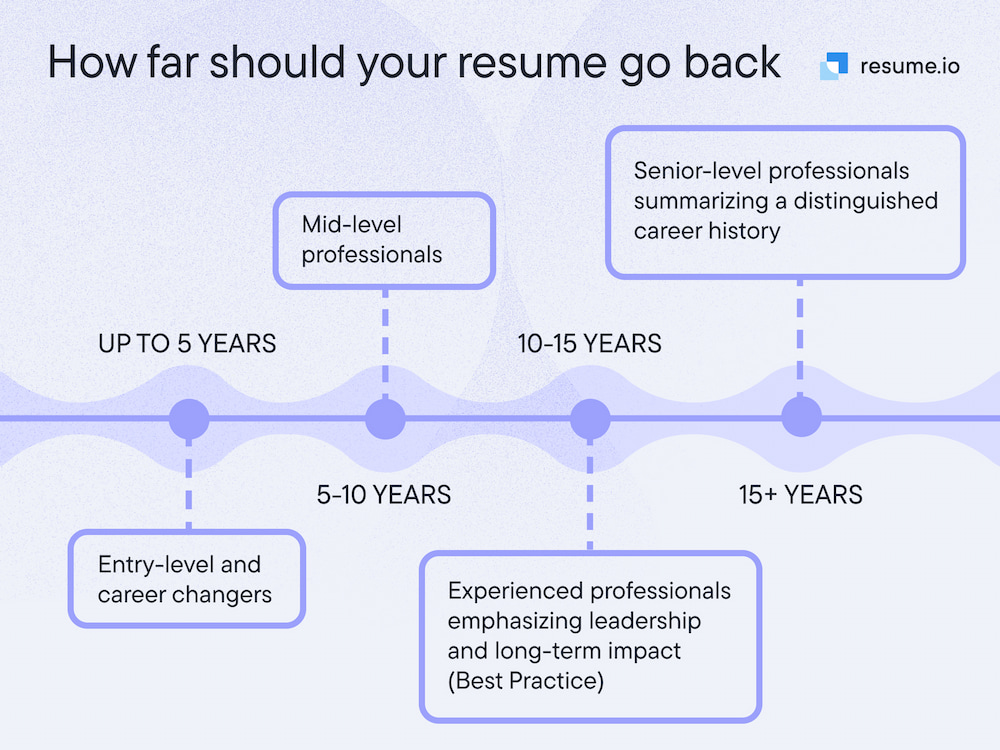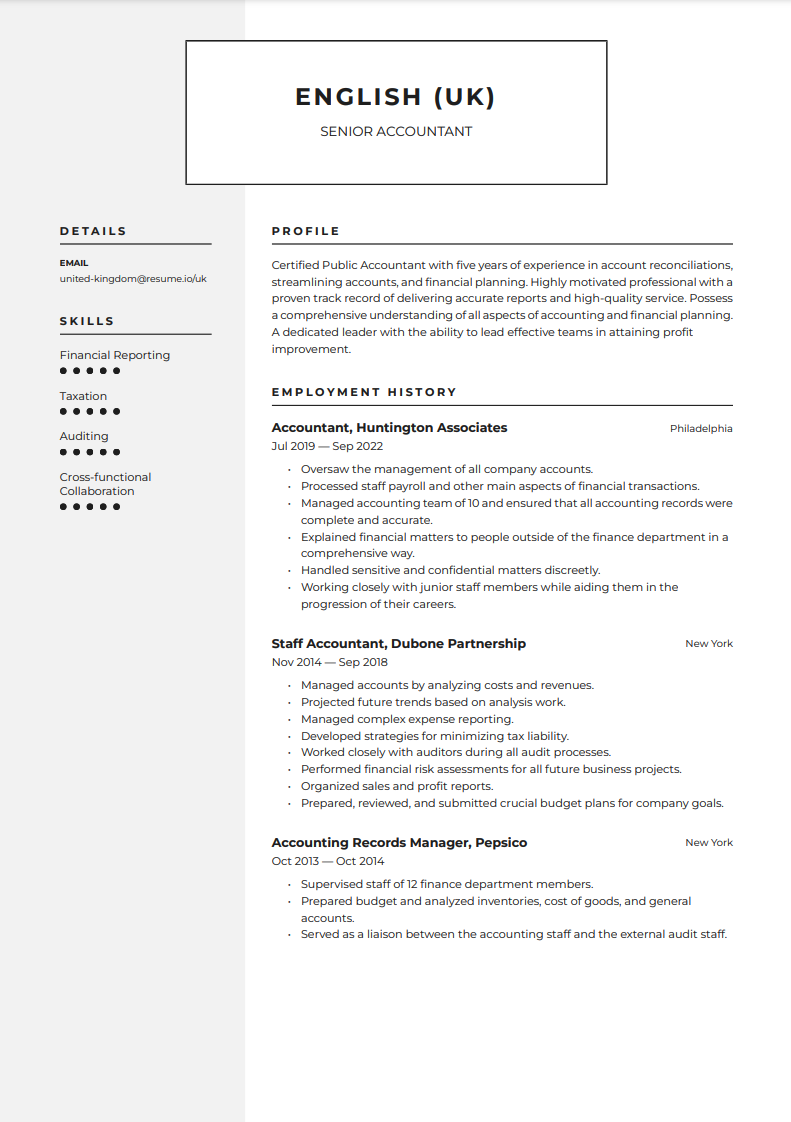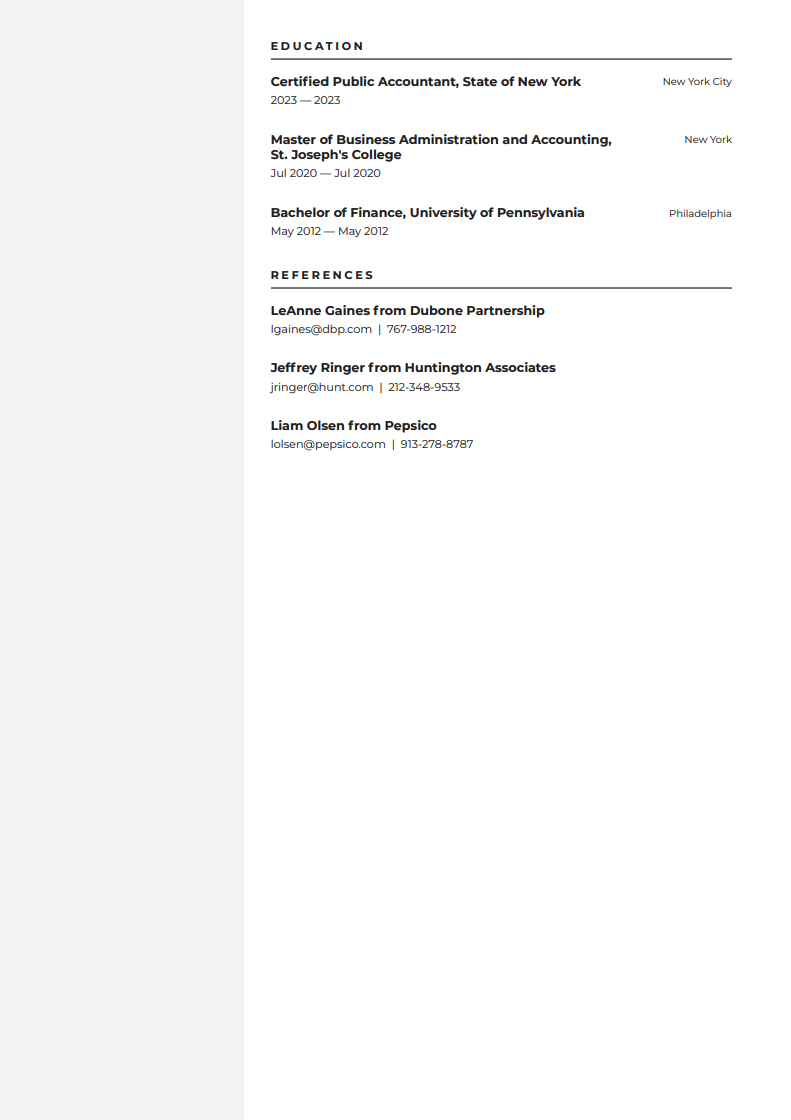Deciding what information to include—and how much to display—is one of the biggest considerations when creating your resume. Should everything fit on a single page? Can a resume be two pages long? These are important questions that are worth considering.
The good news is that a two-page resume is okay, but you must be thoughtful. In this article, we explore the pros and cons of this choice and consider the following:
- How long should a resume be, anyway?
- When to use a two-page resume
- How to format a two-page resume
Let’s get started.
The recruitment ATS will appreciate a two-page resume. One thing to consider is that your resume may not only be read by humans. If the job description is particularly demanding in terms of skills and experience, a two-page resume gives you more space for relevant keywords to be picked up by the algorithm. To see how your resume performs, try using an ATS resume checker to ensure it's optimized for applicant tracking systems.
Are there rules about resume length?
A few unbreakable rules about how you present your content on a resume do exist. Of course, everyone has an opinion on whether a resume is best structured on one or two pages, but at the end of the day, it’s your choice. Your resume can be two pages long if your career story warrants it. Or, if you want to go for a focused and powerful impact, one page can be enough.
Ultimately, your resume should be long enough to contain everything a hiring manager needs to know, but not so long that they fall asleep reading it.

Certain roles specify the length of a resume (many entry-level jobs will ask for a one-page resume) and if this is the case, then a job seeker would be foolish to do anything other than what has been requested.
There are two golden resume length rules for every job seeker:
- If there are parts of your two-page resume that you would rather not talk about at an interview, consider cutting it down to one page.
- If you are failing miserably to cram your (relevant) experience into one page—reducing fonts and omitting your education and certifications—opt for an extra page.
When to use a two-page resume
There are a few things to consider when deciding how long your resume should be. Here are a few reasons two pages could be the right choice.
The job description is demanding
When a company publishes a complicated job description, it tends to indicate that the level of detail throughout the process will be high. If you feel that you need two pages to address all of the points in the job description, the employer will likely appreciate your effort. They wouldn’t write a mega job posting and expect a half-baked resume in return.
You don’t want to omit critical details
If you find yourself finishing a one-page resume and closing your laptop with thoughts of “why didn’t I include XYZ?” consider including an extra page. Sure, there will always be more you can say, but if you are omitting details that keep you up at night, then take the plunge.
You have 10+ years of experience
It would be strange if you have been working for fifteen years and lack career accomplishments to fill two pages of a resume. Of course, there’s no need to include every single job, so only go back 10-15 years. Be sure to give depth to your accomplishments and quantify where possible.
You’re in a technical or academic role
Two or more pages for a resume are standard in academic or technical roles where your caliber is measured by the research that you’ve contributed to your academic community or the qualifications and certifications you’ve amassed along your technology journey. These are your badge of honor and should certainly be given their due amount of space.
2-Page Resume Example


In the above example of an accountant resume, the applicant has extensive experience that necessitates adding a second page. Especially when your resume includes specific accomplishments and metrics, you may need more space to convey all of the important information.
4 Format tips for a two-page resume
There are a few considerations for a two-page resume:
1. Put the reasons for hiring you front and center
Just as the summary should contain the key messages of your resume, the first page should contain the very best bits. It should be reverse-chronological to show the most recent roles, the skills section needs to be here, and ideally a couple of your most recent roles.
2. Pack both pages with relevant keywords and achievements
While the first page is important to grab a client’s attention, this doesn’t mean that page two should drop off in intensity. The roles might be less recent, but that doesn’t mean your accomplishments are worth less.
3. List additional information on page two
Your future employer will be interested in your education and personal development, so they will move on to page two to find these aspects of your application. Put them at the end of your resume unless you’re a recent graduate.
4. Don’t feel that you have to fill an entire second page
Some might say that if page two is not full of content, it shows you do not have much else to show. However, most feel it is better to include just the most relevant parts of your application. Don’t include unimpressive filler phrases.
Key takeaways
Many job seekers struggle with whether or not to write a two-page resume. While traditional advice used to say always stick with one page, there are distinct advantages in having a two-page resume.
In general, if you are a recent grad or early on in your career, condensing your experience into one page is still the way to go. However, as young professionals pack their early careers with more experiences and personal development than ever before (with the proliferation of online learning), the two-page resume is increasingly popular. And, of course,senior-level professionals with 10+ years of experience will likely opt for the two-page.
Whether your resume is one or two pages, Resume.io is here to help. With drag-and-drop templates and stunning layouts, we help you create a resume that wows.








